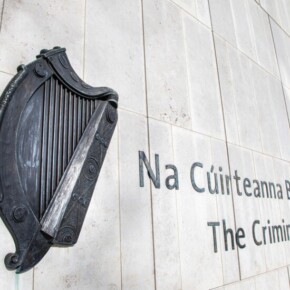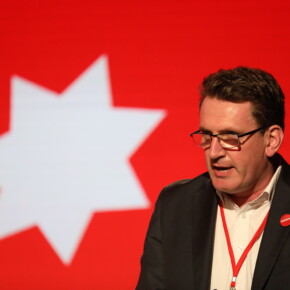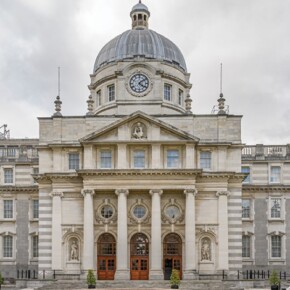Meet your new Northside TDs!
Mike Finnerty 11 Dec 2024
November 29 saw Dublin (and by extension, the rest of the country) elect 174 TDs to the Dáil.
A number of TDs that were elected on November 29 are first-time TDs.
With that in mind, here are the new batch of TDs that will be representing East Dublin over the course of the 34th Dáil.
Dublin Bay North:
First-time TDs: Tom Brabazon (Fianna Fáil), Naoise Ó’Muirí (Fine Gael) Barry Heneghan (independent)
With three of the 2020 batch of TDs not running in 2024 (Fianna Fáil’s Seán Haughey, Fine Gael’s Richard Bruton and Labour’s MEP Aodhán Ó Ríordáin), Dublin Bay North was a Megadeth-style revolving door this year.
The big headline in the constituency was Social Democrats man Cian O’Callaghan topping the poll ahead of Sinn Féin’s Denise Mitchell but the remaining three seats were just as interesting in their drama.
Dublin Bay North was the final Dublin constituency to fill their seats with the race not being called until the early hours of Monday, December 2.
The results saw a changing of the guard; Tom Brabazon filled the Haughey seat, Ó’Murií filled the Bruton seat while it was independent wildcard Barry Heneghan who took the final seat at the expense of a second seat for Fianna Fáil, Fine Gael and Labour.
Brabazon has served on Dublin City Council since 2004 and briefly served as Lord Mayor of Dublin in early 2020 after colleague Paul McAullife was elected to the Dáil.
Brabazon topped the poll in Donaghmede in June’s local elections, while Ó’Muirí topped the poll in Clontarf.
Dublin Bay North will be represented by three former mayors; Naoise Ó’Muirí served as Lord Mayor of Dublin between 2012 and 2013 while Cian O’Callaghan served as Mayor of Fingal County Council between 2012 and 2013.
Heneghan’s victory is notable as he only became a first-time councillor in June after being backed by Finian McGrath and rode that wave of support all the way to the Dáil.
Heneghan needed every last transfer to win the final seat, receiving transfers from everyone from Aontú, Fine Gael, People Before Profit, Labour and the Greens to get over the line but Heneghan’s win meant that each of the five TDs in Dublin Bay North all represent a different strain of Irish politics.
Dublin Fingal West:
First-time TDs: Robert O’Donoghue (Labour) and Grace Boland (Fine Gael)
The split of Dublin Fingal from a 5-seater to two separate 3-seaters last August raised a lot of eyebrows, but few could have predicted Labour coming away with two Dáil seats from the deal.
Robert O’Donoghue was co-opted onto Fingal County Council in the summer 2018, and two poll-topping performances in Rush-Lusk were enough to get him a ticket to the Dáil.
O’Donoghue has been one of Labour’s success stories in recent years, with O’Donoghue and fellow councillor Corina Johnston bringing in nearly 40% of the vote in Rush-Lusk back in June.
The data analyst who is partial to The Pixies and a bit of Neil Young is one of two new TDs for Dublin Fingal West and continues Labour’s stronghold in the area.
Fine Gael’s big election loss saw Alan Farrell lose his seat in Dublin Fingal East but this is compensated by first-time candidate Grace Boland winning a seat for the party.
From a political family, Boland is the daughter of former Fine Gael minister John.
John Boland served in a number of high-profile roles in the 1980s such as Minister for Health, Minister for Environment, and Minister for Education while her uncle Cathal Boland has served on Fingal County Council for the best part of 20 years as both a member of Fine Gael and an independent.
Boland won a seat to the Dáil having never stood in an election, with her life before politics consisting of running a law practice in Skerries.
Dublin Fingal East:
First-time TDs: Ann Graves (Sinn Féin)
On a day dominated by Green seat after Green seat falling by the wayside, the other big Dublin beast to lose their seat was Fine Gael’s Alan Farrell.
What makes Farrell’s loss surprising is the constituency re-electing Labour man Duncan Smith after he made the greatest comeback since Elvis and Sinn Féin getting their councillor who lost their seat in June into the Dáil.
Social Democrats councillor Joan Hopkins did a lot of damage in her ultimately unsuccessful bid for a Dáil seat, with her transfers ultimately being enough to get Graves and Smith over the line at the expense of Farrell.
Graves lost her Fingal County Council seat in June (but was co-opted onto the council not long after).
Graves was co-opted onto Fingal County Council in 2018, won a seat in Swords in 2019 and lost said seat in June.
Like O’Reilly, Graves has union chops thanks to her involvement with SIPTU.
While it was widely expected that Louise O’Reilly would top the poll in Dublin Fingal West, few had the expectation that Graves would be competitive in Dublin Fingal East, let alone win it.
Dublin Fingal East was an incredibly tight race; in the end, Farrell lost out by 146 votes to Smith and by 303 votes to Graves.
Dublin Central:
New TDs: Marie Sherlock (Labour)
November’s election could mark a turning point for Labour after nearly a decade in the wilderness, and Marie Sherlock’s win in Dublin Central is a key part of the jigsaw.
First elected to Dublin City Council in 2019 for the Cabra-Glasnevin area, Sherlock was elected to the Seanad in 2020.
Prior to a career in politics, Sherlock worked closely with SIPTU, serving as a trade union official and economic adviser to the union as well
In more recent times, Sherlock served as Labour’s director of elections as Aodhán Ó Ríordáin became the party’s first MEP since 2009 and the party saw their best results on Fingal County Council since 2009.
In the run-up to the general election, Sherlock commented that the previous government “bottled” remote work legislation and would fight to give it more teeth over the term of the next government.
With Labour’s electoral success owing a lot to the collapse of the middle-class progressive Green vote from 2020 as well as Sinn Féin’s dithering on the issue, Sherlock could be the one who puts the Labour back in Labour.
Dublin West:
New TDs: Emer Currie (Fine Gael)
Returning TD: Ruth Coppinger (Solidarity)
Emer Currie first came to prominence after serving as Leo Varadkar’s running mate in the 2020 general election campaign.
Currie was not elected on that occasion but served in the Seanad between 2020 up until her Dáil election.
Currie was elected to Fingal County Council in the Castleknock area in 2019, serving for a year until she was elected to the Seanad.
Her father, Austin Currie, was a TD for the area between 1989 and 2002, served as a Minister Of State in the “Rainbow Coalition” between 1994 and 1997, and was one of the co-founders of the SDLP in Northern Ireland.
After being tapped to run alongside Leo Varadkar in the 2020 general election, where she received 4.3% of first preferences, she was easily elected to the Dáil in late November with 15.4% of first preferences.
Ruth Coppinger first came to prominence after her by-election win in 2014, won re-election in 2016 and ultimately lost her seat in the 2020 general election.
Dublin West was a stronghold for the Irish left over the years with Socialist Party member Joe Higgins representing the area between 1997 and 2007 and from 2011 to 2016.
Coppinger won re-election to Fingal County Council in June, serving as a prelude to her Dáil comeback.
Coppinger actually received fewer votes and first preferences compared to the 2020 general election (10% and 4,353 first preferences was cut to 8% and 3,252 this time around) but the 5-seater nature of the constituency and transfers were enough to win her back the seat.
Dublin North-West:
New TDs: Rory Hearne (Social Democrats)
November 29 was a champagne day for the Social Democrats who overperformed expectations by winning 11 Dáil seats.
Among their highlights was academic Rory Hearne, who received the most preferences in Dublin North-West.
Hearne’s victory cost Sinn Féin a second seat in the process as their gambit of winning two seats in a three-seater didn’t pay off.
Hearne was tasked with winning the seat held by Róisín Shortall since 1992 and he did it with aplomb.
The reduced turnout in the seat (62% in 2020, 56.5% in 2024) can be enough to excuse that the Social Democrats actually lost votes in the seat compared to 2020 (18.9% in 2020, 14.1% in 2024) but it ultimately does not matter; any pre-election fears that voters would reject Hearne because he wasn’t Shortall proved to be fruitless.
The Sinn Féin vote in the area collapsed from 44.4% in 2020 to 30.6% which was enough to let Hearne in the back door.
Housing wasn’t quite the salient issue it was in the 2020 general election, but Hearne has made his name as the Social Democrats’ answer to Eoin Ó’Broin after publishing books on the topic.
Hearne previously stood as a general election candidate for People Before Profit in the 2007 general election in Dublin South-East and was the Social Democrats’ European candidate in the sprawling Midlands-North-West constituency in June.











